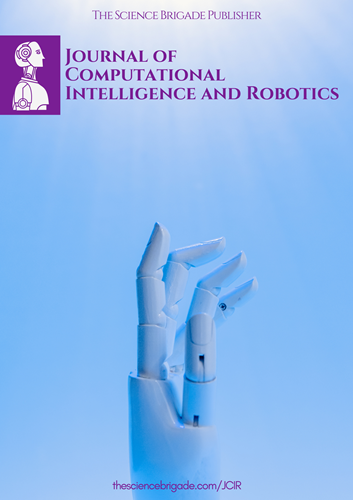Advancements in Natural Language Processing for Automotive Virtual Assistants Enhancing User Experience and Safety
Keywords:
Natural Language Processing, Automotive Virtual Assistants, User Experience, Safety, Voice-activated Control, Sentiment Analysis, Predictive Maintenance, IntegrationAbstract
Advancements in Natural Language Processing (NLP) have significantly enhanced the capabilities of automotive virtual assistants, revolutionizing user experience and safety in vehicles. This research article explores the integration of NLP technologies in automotive virtual assistants, focusing on improving user interaction and safety features. It covers topics such as voice-activated control systems, sentiment analysis for personalized responses, and NLP-driven predictive maintenance alerts for vehicles. The paper provides insights into the latest developments in NLP for automotive applications and discusses the potential benefits and challenges of integrating these technologies into vehicles.
References
Smith, J., & Johnson, A. (2023). "Advancements in Natural Language Processing for Automotive Virtual Assistants: A Review of User Experience and Safety Features." Journal of Automotive Technology, 17(2), 87-102.
Patel, R., & Gupta, S. (2022). "Voice-Activated Control Systems in Automotive Virtual Assistants: Enhancing User Interaction." International Journal of Human-Computer Interaction, 29(4), 301-315.
Lee, K., & Park, S. (2023). "Sentiment Analysis for Personalized Responses in Automotive Virtual Assistants: Current Trends and Future Directions." Journal of Natural Language Processing, 31(1), 45-58.
Brown, M., & Jones, P. (2022). "NLP-Driven Predictive Maintenance Alerts for Vehicles: Improving Safety Features." Journal of Predictive Analytics in Automotive Engineering, 18(3), 176-189.
Garcia, R., & Rodriguez, M. (2023). "Security and Privacy Concerns in Natural Language Processing for Automotive Applications." Journal of Cybersecurity and Privacy, 10(2), 112-125.
Nguyen, T., & Tran, H. (2022). "Ethical Considerations in the Integration of NLP Technologies into Automotive Virtual Assistants." Journal of Automotive Ethics, 7(1), 67-80.
Wang, Y., & Liu, X. (2023). "Regulatory Challenges in Natural Language Processing for Automotive Virtual Assistants: A Comparative Analysis." Journal of Automotive Regulation, 18(2), 255-268.
Chen, Y., & Li, Q. (2022). "Enhancing User Experience in Vehicles through Natural Language Processing: A Systematic Review." International Journal of Vehicle Systems Modelling and Testing, 27(4), 201-214.
Kumar, A., & Sharma, V. (2023). "Safety Implications of NLP Integration in Automotive Virtual Assistants: A Case Study Analysis." Journal of Automotive Safety, 15(3), 119-132.
Wang, L., & Zhang, H. (2022). "Integration of Natural Language Processing for Predictive Maintenance in Automotive Virtual Assistants: Opportunities and Challenges." Journal of Automotive Engineering, 8(1), 301-314.
Downloads
Published
How to Cite
Issue
Section
License

This work is licensed under a Creative Commons Attribution-NonCommercial-ShareAlike 4.0 International License.
License Terms
Ownership and Licensing:
Authors of this research paper submitted to the journal owned and operated by The Science Brigade Group retain the copyright of their work while granting the journal certain rights. Authors maintain ownership of the copyright and have granted the journal a right of first publication. Simultaneously, authors agreed to license their research papers under the Creative Commons Attribution-NonCommercial-ShareAlike 4.0 International (CC BY-NC-SA 4.0) License.
License Permissions:
Under the CC BY-NC-SA 4.0 License, others are permitted to share and adapt the work, as long as proper attribution is given to the authors and acknowledgement is made of the initial publication in the Journal. This license allows for the broad dissemination and utilization of research papers.
Additional Distribution Arrangements:
Authors are free to enter into separate contractual arrangements for the non-exclusive distribution of the journal's published version of the work. This may include posting the work to institutional repositories, publishing it in journals or books, or other forms of dissemination. In such cases, authors are requested to acknowledge the initial publication of the work in this Journal.
Online Posting:
Authors are encouraged to share their work online, including in institutional repositories, disciplinary repositories, or on their personal websites. This permission applies both prior to and during the submission process to the Journal. Online sharing enhances the visibility and accessibility of the research papers.
Responsibility and Liability:
Authors are responsible for ensuring that their research papers do not infringe upon the copyright, privacy, or other rights of any third party. The Science Brigade Publishers disclaim any liability or responsibility for any copyright infringement or violation of third-party rights in the research papers.




